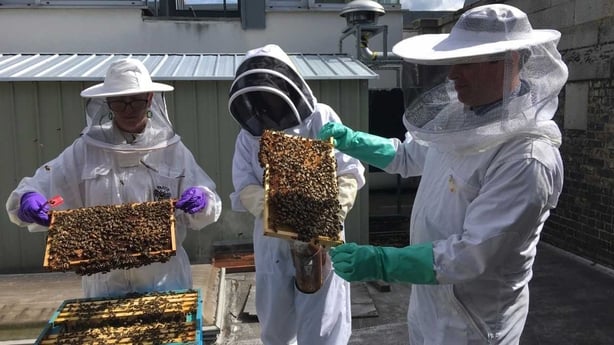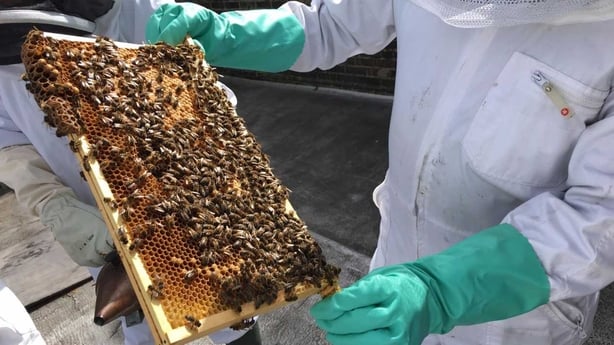The first jars of honey have been produced from beehives at a landmark location in the heart of Dublin city centre.
The two beehives on the roof of Trinity College Dublin are a key element of the Trinity Campus Pollinator Plan (CPP).

The CPP contributes to a national programme of actions to reverse the decline in pollinators in Ireland and help to restore healthy pollinator populations.
There have been global declines in many species of bees, due it is believed to pesticides, parasites, disease and habitat loss.
A third of Ireland's 97 bee species are under threat of extinction.
The CPP, along with a network of other green areas in the city, aims to help restore urban sites that are important for a range of bee species in the centre of Dublin.
The first jars of honey have come from beehives on a rooftop at Trinity College pic.twitter.com/yEQquldAii
— RTÉ News (@rtenews) August 2, 2017

"By working together we can collectively take steps to reverse pollinator declines in Ireland, and restore healthy populations that contribute to our economy, wealth, health, and well-being, and which support other wildlife in the wider landscape," said Professor in Botany at Trinity, Jane Stout.
Pollinators are important in Ireland, not just for agricultural production of crops such as apples, strawberries and oilseed rape, but also for the majority of wild plants, which create the wild habitats that Ireland is famous for.
The honey produced by the bees at Trinity is not being sold; it will be studied as part of further research projects.
Buzzing to get this pic of the beehives at Trinity College Dublin. Needed full bee suit regalia and #insta360 camera to get this close! 🐝🐝🐝 pic.twitter.com/w6ZmCUYIG6
— Philip Bromwell (@philipbromwell) August 2, 2017

